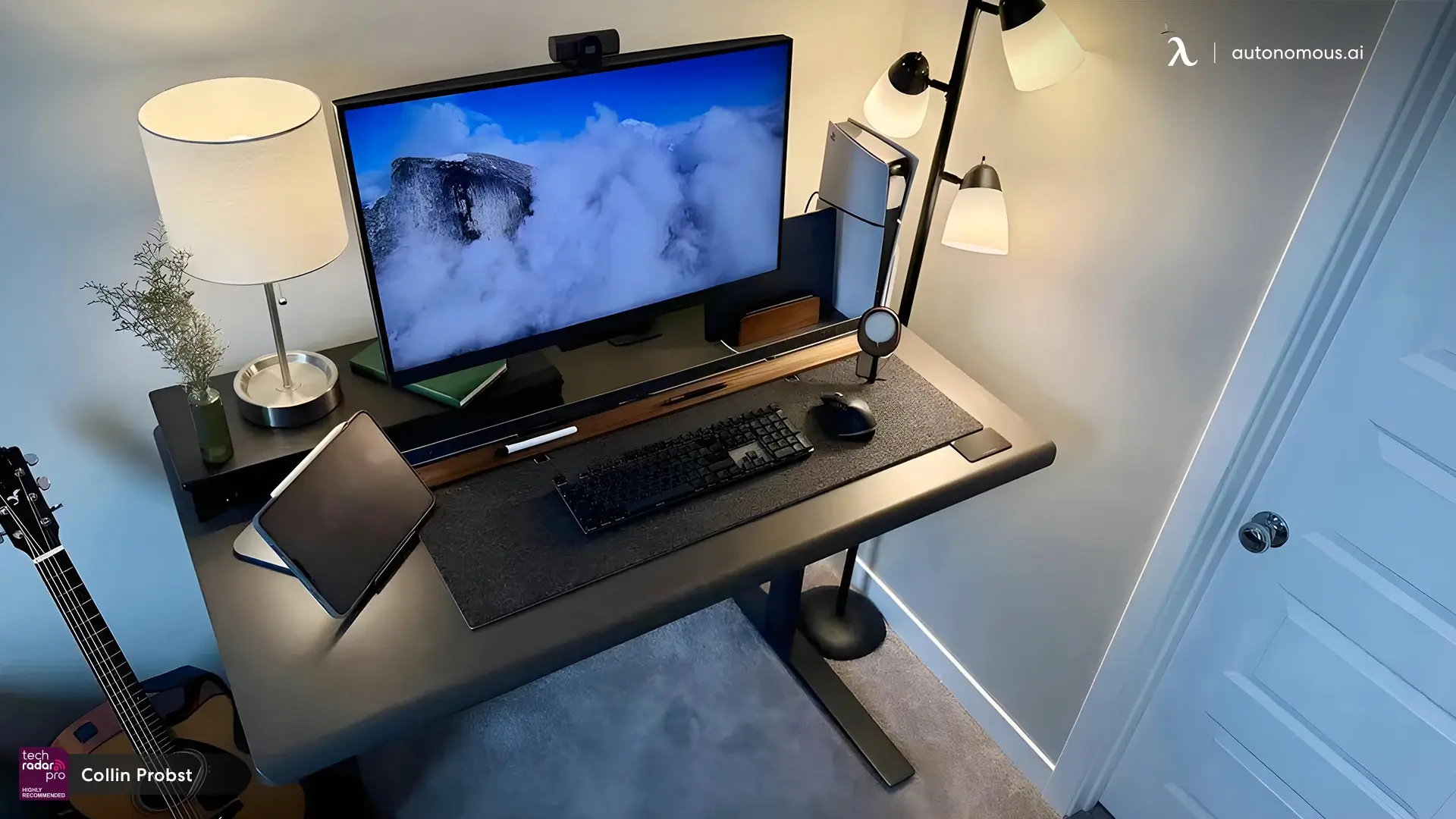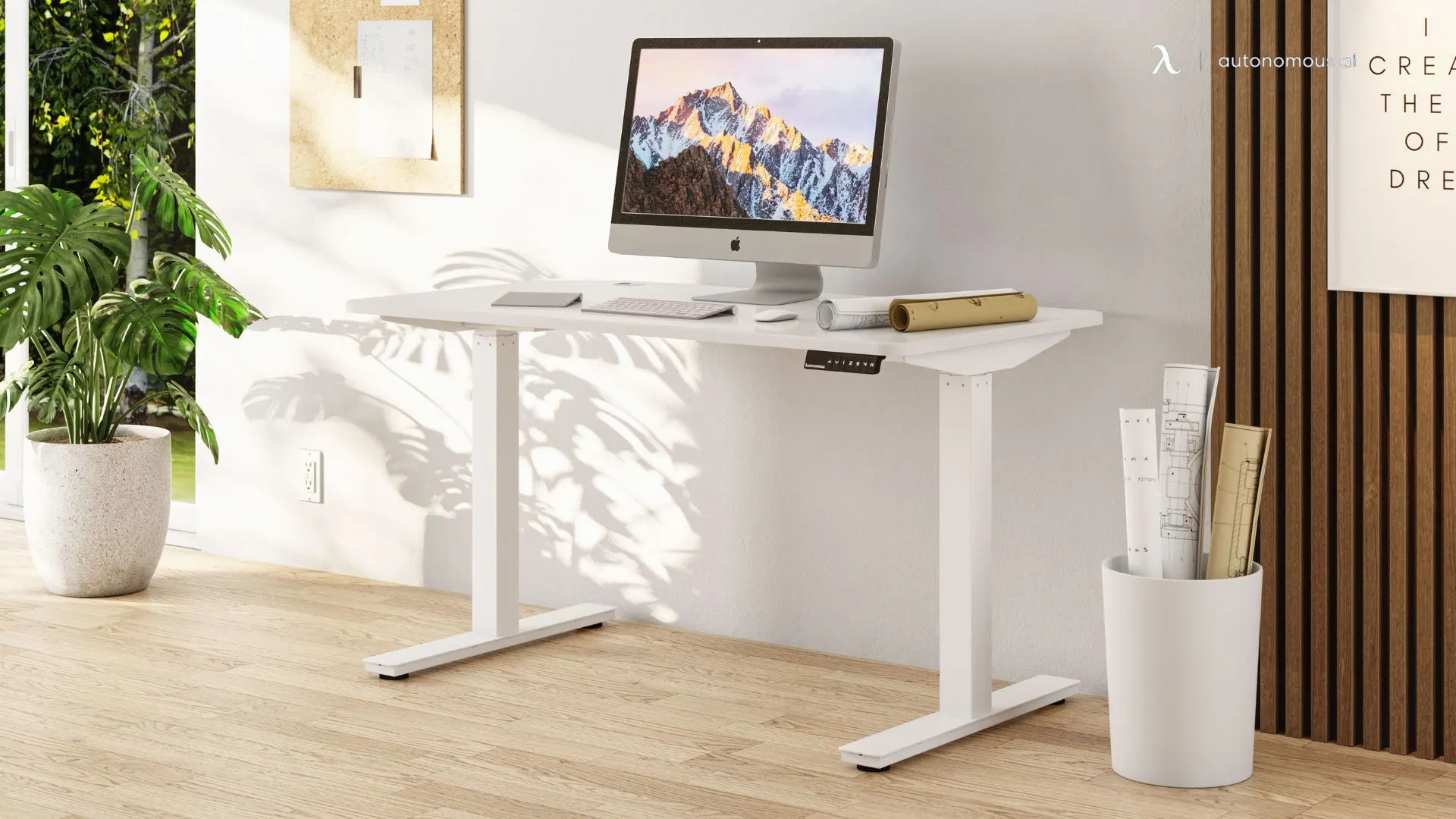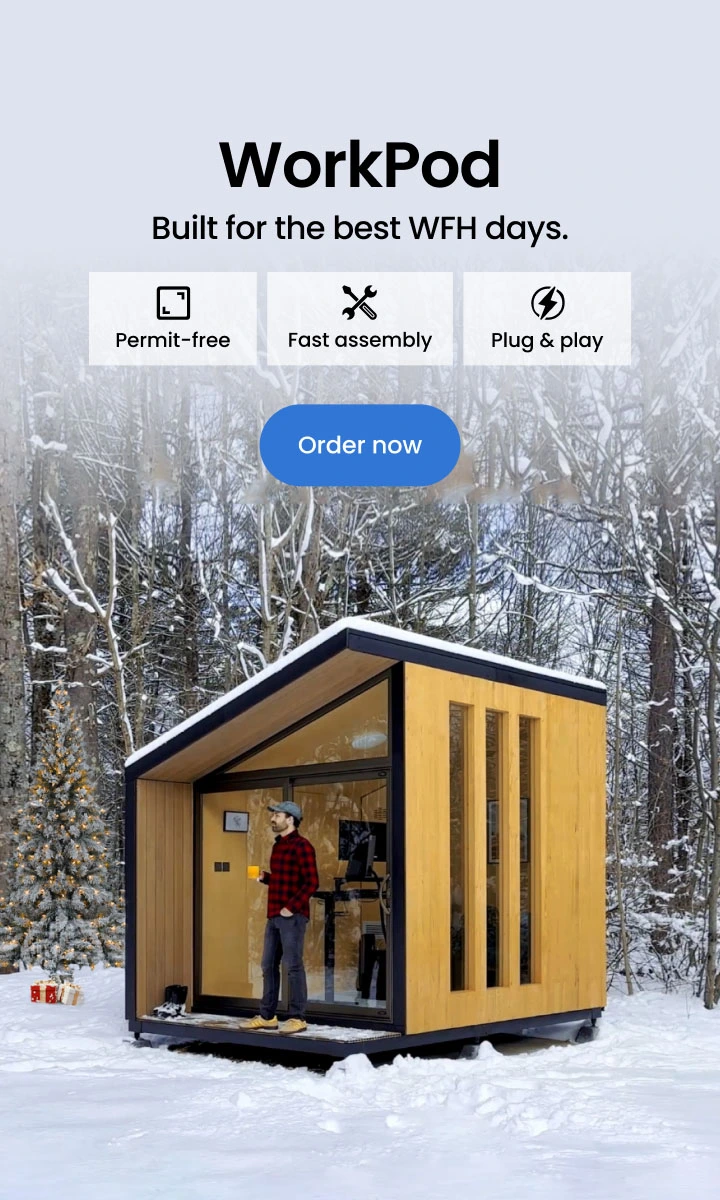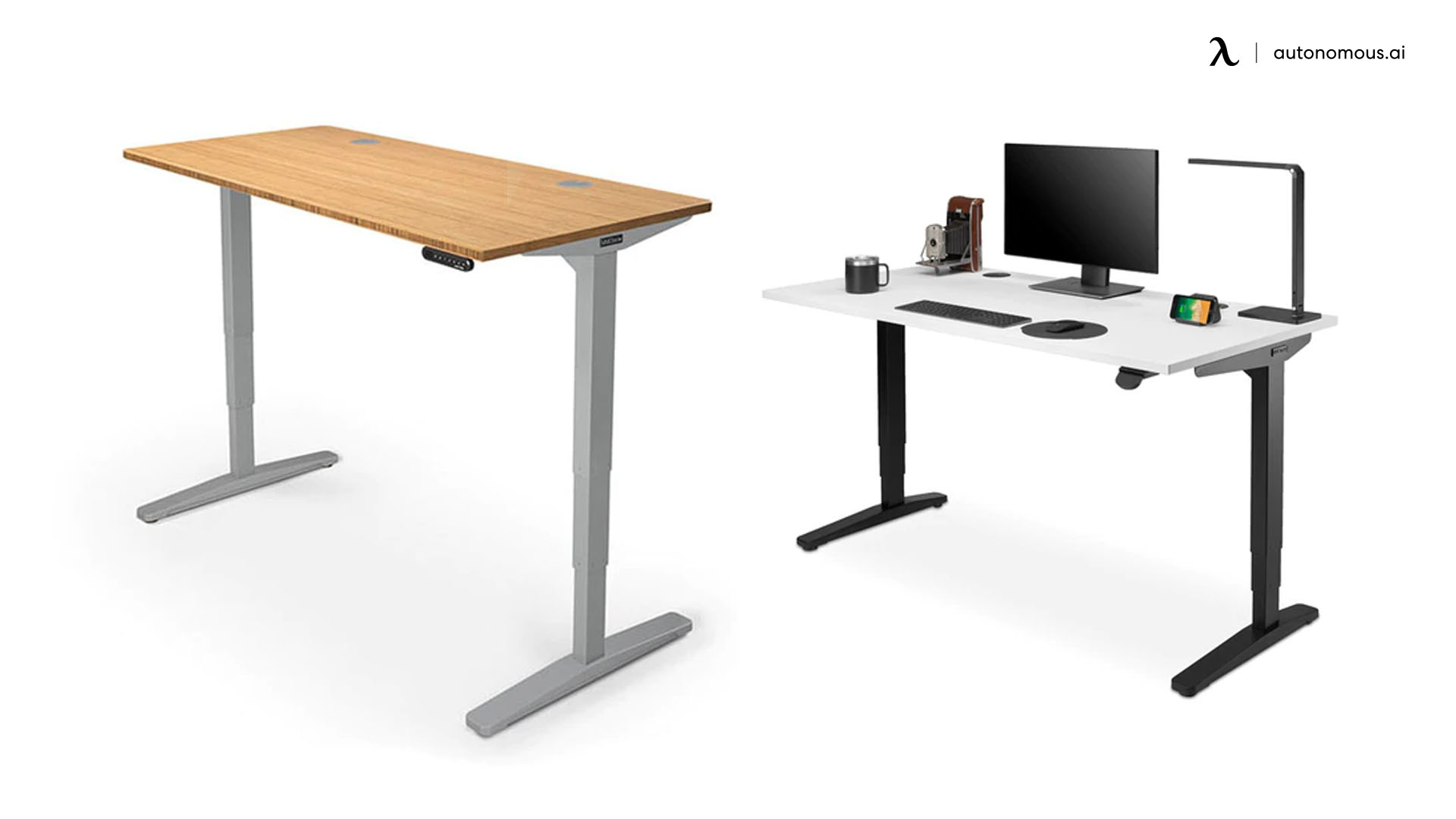
C-Frame vs. T-Frame Standing Desks: Which is Right for You?
Table of Contents
When choosing a standing desk, understanding the differences between a C-frame vs. T-frame standing desk is crucial. This guide will help you decide which standing desk frame is best for your home office or workplace setup.
What Are Standing Desk Frames and Why Do They Matter?
A standing desk frame is the structural foundation of a height-adjustable desk, supporting the desktop and enabling smooth height changes. Unlike a complete desk, frames are sold separately, allowing you to pair them with a custom desktop that matches your style or space.
- Ergonomics: A good frame allows smooth height adjustments, letting you switch between sitting and standing to improve posture and reduce fatigue.
- Stability: The frame determines how stable your desk feels, especially when using heavy equipment like dual monitors or desktops.
- Customization: By choosing a frame, you can select a desktop size, material, or design that complements your workspace.
- Durability: A quality frame can handle heavy setups without wobbling or degrading over time.
- Future-Proofing: If your preferences change, you can reuse the frame with a new desktop instead of replacing the entire desk.
If you're considering a luxury standing desk, there are many premium options that offer both aesthetic appeal and sturdy frames. For a more budget-friendly option, explore budget standing desks that provide great value without sacrificing quality.
Types of Standing Desk Frames
- Electric Frames: These use motors to adjust the height at the press of a button. Dual-motor models are smoother and better for heavy-duty setups. Dual motors provide better stability and faster adjustments. When selecting a standing desk base, dual-motor frames are often a more stable choice for heavier setups.
- Manual Frames: Affordable and reliable, these require manual cranking to adjust the height. For those who don’t need adjustable height options, a non-adjustable standing desk could be the right fit for a fixed workspace.
- Corner or L-Shaped Frames: Perfect for maximizing workspace in corners. If you're interested in an L-shaped standing desk frame, there are many options available to optimize your office space.
- 4-Leg Standing Desks: If you prefer a more traditional design, 4-leg standing desks are great for providing strong support.
If you’re considering an electric frame, understanding how different motor systems work can help you choose the right one. This complete guide to the standing desk motor breaks down everything from motor types to performance differences.
A standing desk frame is the backbone of a functional and ergonomic workspace. Choosing the right frame can enhance your ergonomic setup, improve productivity, and ensure your desk fits seamlessly into your office space.
C-Frame and T-Frame Standing Desks
| Feature | C-Frame Standing Desk | T-Frame Standing Desk |
|---|---|---|
| Design and Aesthetics | Modern and sleek with C-shaped legs, offers more under-desk space | Traditional appearance with straight T-shaped legs, available in various styles |
| Stability and Durability | Robust stability with a wide base, ideal for heavy equipment | Stable but may not support very heavy loads as well as a C-frame |
| Space and Functionality | More legroom and flexibility, open design feels more spacious | Takes up slightly more floor space but offers a traditional workspace feel |
| Ease of Assembly | Generally easier to assemble with fewer components | Requires more steps in assembly but comes with detailed instructions |
1. Design and Aesthetics
C-Frame: Characterized by its distinctive C-shaped legs, the C-frame provides a modern and sleek look. It is designed to offer more under-desk space, making it easier to move around and store items. The contemporary design of the C-frame can complement modern office interiors, making it a popular choice for home offices with a minimalist design. To learn more about choosing the right size, check out home office desk size.
T-Frame: The T-frame has a more traditional appearance with its straight, T-shaped legs. It offers a balanced look and often comes in a variety of styles to match different office decors. The classic and versatile design of the T-frame allows it to blend seamlessly into various office environments, whether traditional or contemporary.
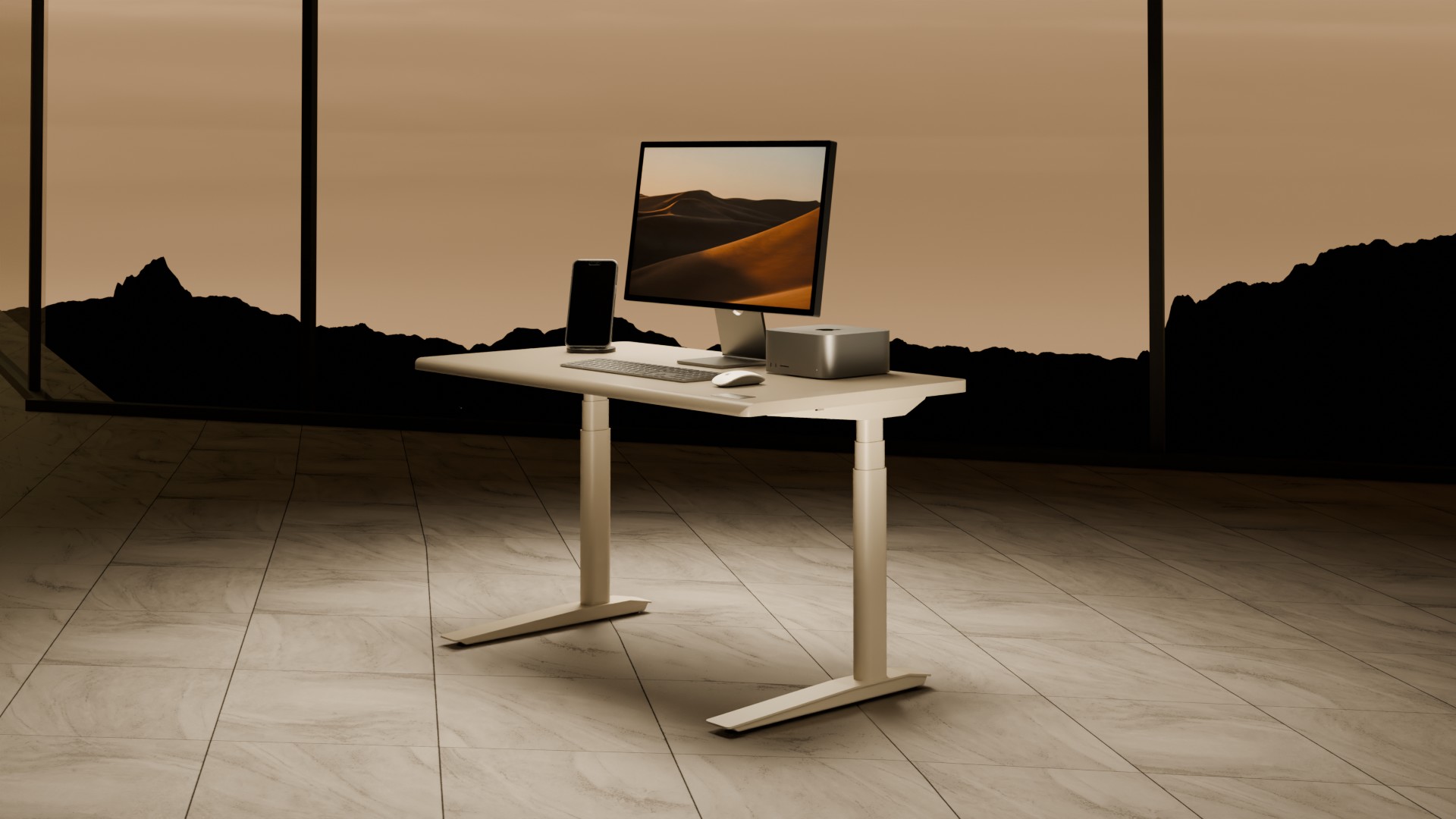
2. Stability and Durability
C-Frame: Typically, the C-frame is known for its robust stability due to its wide base. This makes it an excellent choice for those who need a sturdy desk for heavy equipment or multiple monitors. Generally supports a higher load capacity due to its wide base and robust construction. Ideal for setups with multiple monitors, heavy office equipment, or standing desk converters.
T-Frame: While also stable, the T-frame might not offer the same level of support for very heavy loads. However, it is sufficient for standard office setups and provides a reliable work surface. Suitable for standard office equipment but might have limitations with very heavy loads compared to the C-frame. Ideal for typical office tasks and lighter setups.
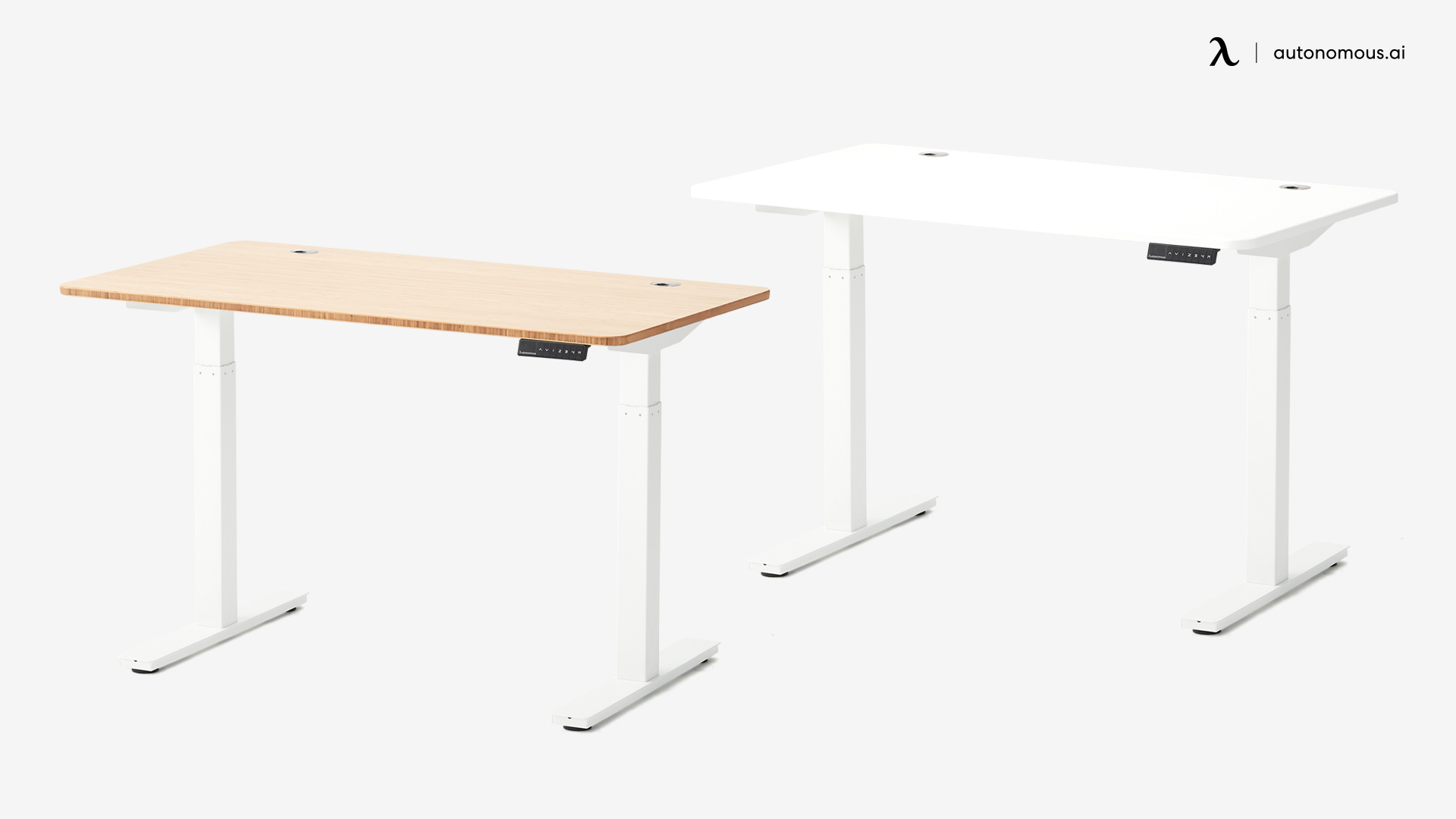
3. Space and Functionality
C-Frame: Offers more legroom and flexibility in placing under-desk accessories. Its open design can make a small room feel more spacious. The open design of the C-frame allows for better space utilization under the desk. This is particularly useful if you plan to add storage solutions or need extra legroom for ergonomic accessories like a footrest.
T-Frame: Takes up slightly more floor space due to its base design but offers a traditional workspace feel. It is often preferred in conventional office settings. The T-frame design can feel more enclosed due to the leg placement. However, it provides a consistent and balanced support system, which can be beneficial in settings where the desk remains stationary.
>>> How Deep Should Your Desk Be?
4. Ease of Assembly
C-Frame: Assembly might be more straightforward due to fewer components and a more intuitive design.
.webp)
T-Frame: Can require more steps in assembly but often comes with detailed instructions to simplify the process.
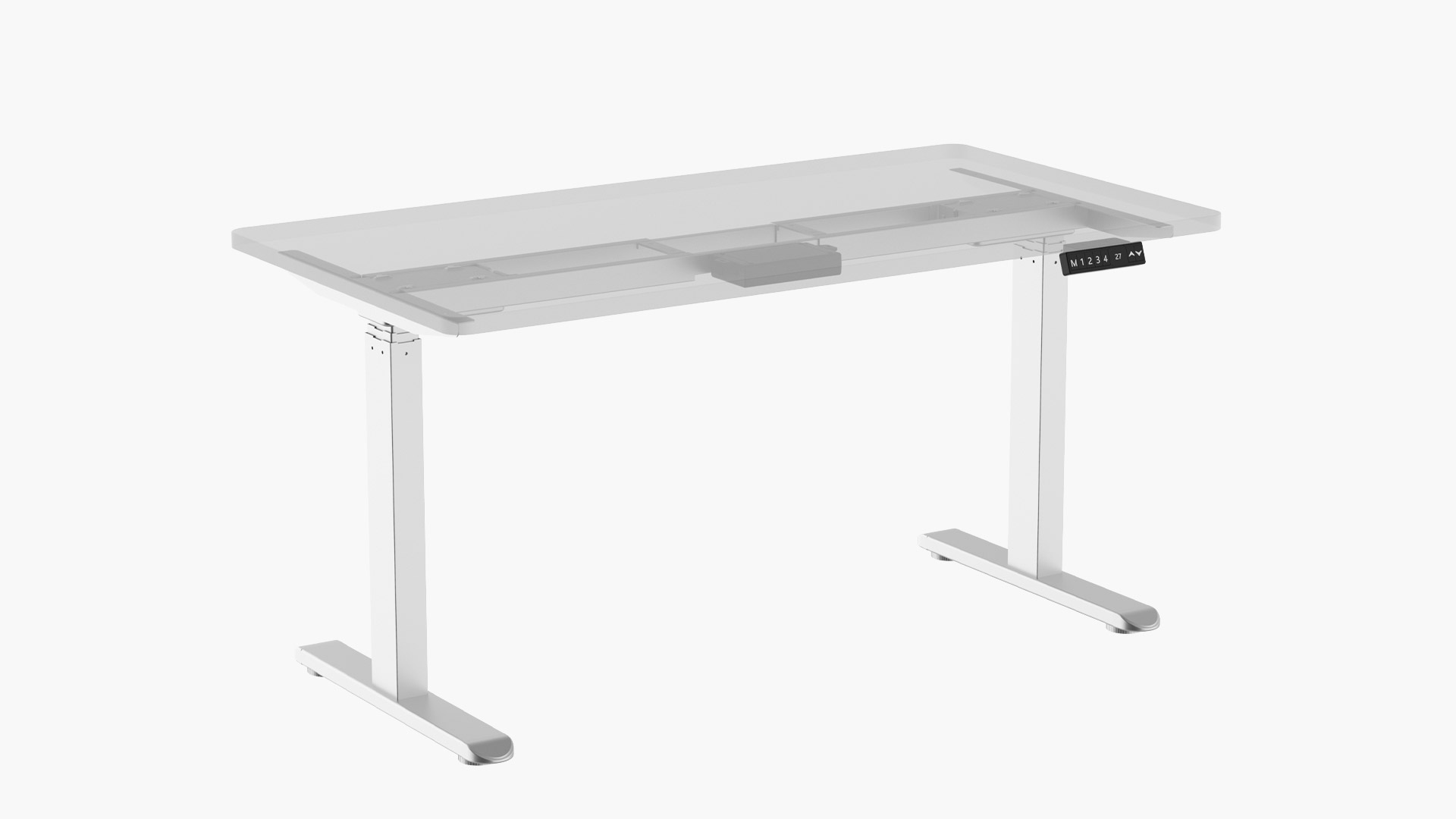
>>> How to Reset Standing Desk?
Final Recommendation Based on User Needs and Preferences
For Minimalist Home Offices: If you prioritize a modern look with ample legroom and flexibility, a C-frame standing desk is ideal. It fits well in home offices where space and aesthetics are key. Check out some great options for a home office desk.
For Traditional Office Settings: If you prefer a classic design with reliable stability for everyday office tasks, the T-frame standing desk is a solid choice. It is suitable for those who need a dependable desk with a timeless look.
With considering these aspects, you can better understand how each frame type can fit into your workspace and meet your specific needs. For more information on ergonomic setups, read our guide on standard office desk height.
| Feature | C-Frame | T-Frame |
|---|---|---|
| Pros | Modern design, ample legroom, high stability, easy assembly | Traditional look, balanced design, versatile, sufficient for standard office equipment |
| Cons | May take up more under-desk space, potentially higher cost | Less legroom, slightly more complex assembly, may not support very heavy loads as well as C-frame |
FAQs
What is the main difference between C-frame and T-frame standing desks?
The main difference lies in the design and structure. C-frame desks have a modern, sleek look with C-shaped legs, offering more under-desk space and stability. T-frame desks have a traditional appearance with straight, T-shaped legs, providing a balanced and reliable workspace.
Which type of standing desk is more stable?
C-frame desks are generally more stable due to their wider base, making them ideal for heavy equipment or multiple monitors. T-frame desks are also stable but may not support very heavy loads as well as C-frame desks.
Are C-frame desks easier to assemble than T-frame desks?
Yes, C-frame desks are generally easier to assemble due to fewer components and a more intuitive design. T-frame desks can require more steps in assembly but usually come with detailed instructions.
Which standing desk frame is better for small office spaces?
C-frame desks are better for small office spaces as their open design allows for better space utilization and flexibility. T-frame desks take up slightly more floor space but offer a traditional workspace feel.
Conclusion
Choosing between a C-frame vs. T-frame standing desk depends on your specific needs and workspace requirements. Consider your standard desk dimensions, the aesthetic you prefer, and the functionality you need to make the best decision. By understanding the differences between C-frame and T-frame desks, you can make an informed choice that enhances your productivity and complements your office design. For more details on desk sizes and ergonomic setups, check out our guides on desk dimensions in feet, inch and cm and the ergonomic standing desk height calculator.
Sag es weiter
.svg)

